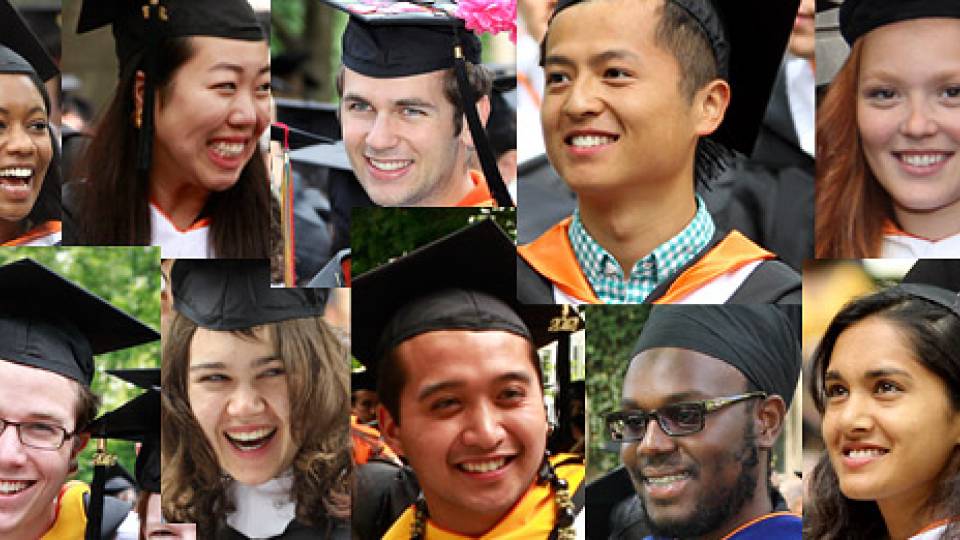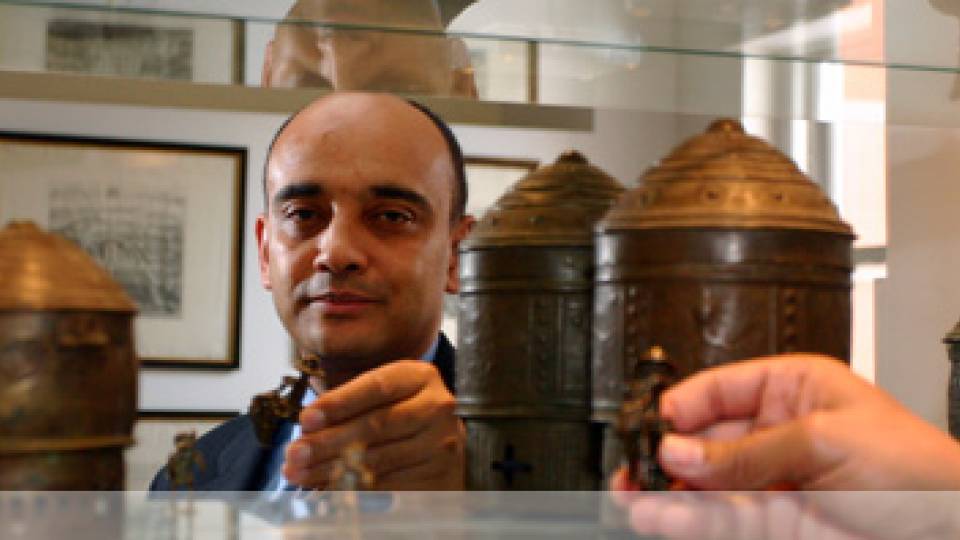2012 Valedictory Oration
Nathaniel Fleming
Commencement
June 5, 2012 — As Prepared
Princeton University Class of 2012
Class of 2012, we have toiled through years of grueling academic work that has pushed
us to our limits. During that time, we have all enjoyed moments of satisfaction as we discover ourselves, both intellectually and personally. But, we have all experienced especially trying moments as well — those late nights spent studying for that impossible final exam, for example — that caused us to ask ourselves, "What is all of this for?" And while there is certainly something noble about thinking of our Princeton education as providing knowledge for knowledge's sake, the practical reality is that learning has to have the purpose of advancing us to some "next step" in our lives. This makes it impossible to ignore the question of how much of our education is actually useful for our long-term goals.
This question is not a new one. As early as eighth grade, I remember being convinced that
my middle school coursework only existed to determine whether or not I was going to get into college. At Princeton, meanwhile, the hard work that we do is meant to prepare us for productive careers that benefit society. Given these premises, it can be difficult to see the inherent value in some of the work that we've done throughout our lives. What good is that philosophy class that the future engineer was required to take, or that science class (with lab) that the aspiring English professor sat through? My eighth-grade self would have dutifully completed all of these distribution requirements with the sole purpose of getting that diploma and moving on with life, never to think about those classes again.
I like to think that I've matured since eighth grade, though, and so I'd like to share a personal analogy that has helped me think about this problem. Before arriving at Princeton, I spent seven years training as a martial artist. The most fundamental purpose of these martial arts, of the numerous complex hand and foot techniques that we learned, was self-defense. And yet, this seemed to be at odds with the practical reality of self-defense: In a real-world situation, let's face it, a simple punch in the nose or a knee to the groin is almost invariably the best, most efficient technique to use. Why, then, were we spending time learning things like ridge hand rib strikes and jump spinning hook kicks, when much simpler things would suffice? As with Princeton's distribution requirements, it was sometimes difficult for me to see how all of it worked towards the stated end goal.
The simple answer, as I discovered, was that experience with these more advanced
techniques is critical in making the simple ones as strong as possible. Executing a jump spinning hook kick without falling on your face requires you to know, in exacting detail, how to generate and control energy with your body — where your arms need to be, what angle your hips need to turn to, where your eyes should be focused. With these same general principles, that simple knee to the groin becomes powerful and effective in the moment of emergency when it is needed the most.
Similarly, all of the apparently extraneous knowledge that we've acquired here at
Princeton may yet be useful to that end goal of a productive career. After all, how can we expect to use our most practical, functional skills without first developing general principles for how to think about the world? Even if you don't believe that education is necessarily an end in itself, it is important to recognize that everything that we have learned here carries a significance beyond simply meeting the requirements to advance to the "next step" in life. We might not always have enjoyed or appreciated those classes that took us outside of our comfort zones, that weren't directly connected to our future goals, but they are the ones that filled out our knowledge of how the world works; they were, if you will, our jump spinning hook kicks.
As we finally exit FitzRandolph Gates, we must never forget the many fundamental principles that we learned from those classes that can help make our work in our chosen paths "powerful and effective." Indeed, our society demands it. We need people in medicine who appreciate the attention to individual differences that anthropology brings us. We need people in law who understand what psychology says about the role that human behavior plays in our legal system. We need people in finance who apply the theories of moral philosophy to their work every single day. And, of course, we need people in academia who are willing to publish work that has meaning outside of a single, narrow discipline. My challenge to you, then, is to come up with your own composite identity along these lines. Don't just think of yourself as a chemical engineer, as a sociologist, as a consultant; we have lots of those already. Instead, bring your own individual knowledge and experiences to your work. Think of your Princeton transcript as a fingerprint: Nobody else has the same one, and your complete list of classes — including that random one that you took senior year because it looked like fun — helps define your unique intellectual identity. Use this to your advantage.
I honestly cannot imagine a group of people better equipped to make these things happen
than the great Class of 2012. Congratulations to all of us, and good luck.

